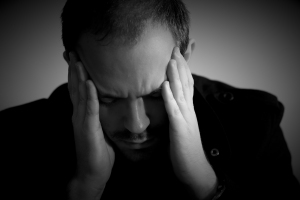
Recently, an article about depression ran in the USA Today newspaper. In essence, it repeated the oft heard formula about how to treat depression: recognize the symptoms, visit and be evaluated by a psychiatrist (and go on medication if needed) and see a psychologist. I have lived out this trifecta of care and treatment and it certainly did help me recover from the worst aspects of depression. But, there was always something missing.
Two weeks ago, I decided to find and commit to a spiritual director in my life. This has taken the form of engaging a person to fill that role in my Catholic tradition. When I first met with my director, I said that I’d lived quite a bit up in my head as a lawyer. I didn’t want to read anymore books or facts about God. I was looking for a relationship with an elder who could teach me about deepening of my relationship to God.
In recent times, our society has called such a teacher-student pairing “mentoring.” Often, we think of it as an older person forming a relationship with a younger one centered on an activity such as school or sports. I believe that it can and should be more than that. And it certainly doesn’t have to take a religious form nor does it have to be an older person imparting his/her wisdom to a younger person. People can be our “elders” by virtue of their wisdom and/or special connection we share with them; indeed young people can be “old souls.”
I did a search today for depression and mentoring on my computer and all of the search results concerned adults helping out younger people to recognize and treat their depression. Yet, don’t we all wish that we had someone to guide us whatever our age? How many times have I heard veteran lawyers tell me that they sorely miss that parent, grandparent or special friend that was there to affirm them and to whom they could talk about the larger issues of life.
In contemporary society, psychologists (or more recently, “life coaches” or “executive coaches”) often fill the role of elders. My own psychologist (a true atheist whom I love and respect dearly), loved my idea of engaging an elder guide calling it “creative.” While depressive thinking does need to be confronted by healthier and more adaptive thinking, it may also require a larger dimension in which to examine and heal from it. Therapy can and does help us to “deal with”, “overcome” and “adapt to” depression. But for me at least, it doesn’t answer the larger questions of meaning. What meaning does this depression have in my life, if any? If it’s just the product of genetics, purely a disease, is there any meaning in it? If it’s just a psychological malady, why would I even bother – or feel the need – to address the spiritual dimension?
Think about it. Think about an organic experience with someone who may provide you with spiritual insight into your depression and help move you in a healthier direction. They can be like an old pine tree that you encounter during a long walk in the woods. How do we find such an elder? First, we have to be open to the idea and recognize that it could be of value to us. Once we have reached this place, we can begin to think creatively about who could fill that role. For me, it was a formal relationship with a spiritual director. Talk with your friends, spouse or psychologist about who could be a good fit for you. It’s true that when a student is ready, the teacher shows up.
Create space in your life for such a teacher and see who comes knocking on your door.

















